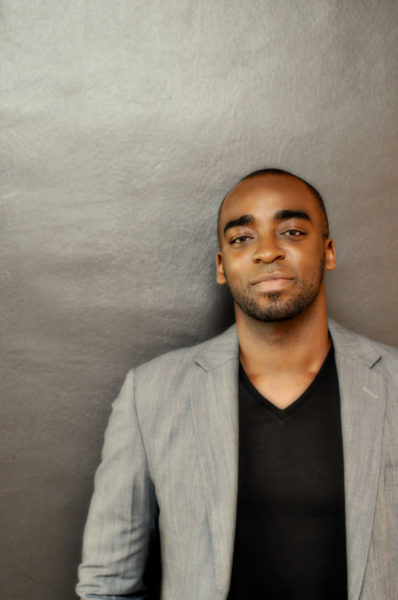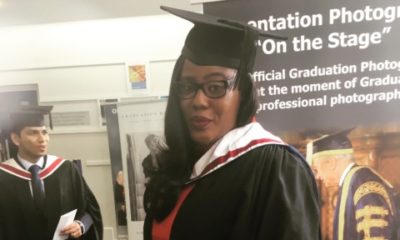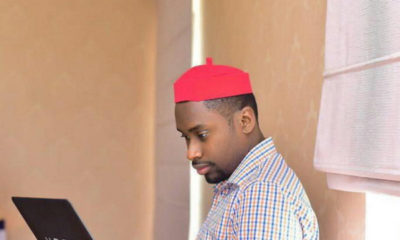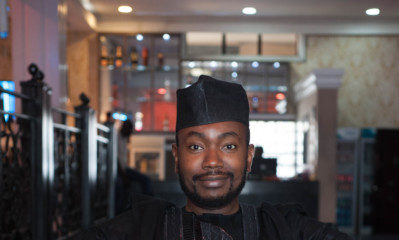Career
Move Back To Nigeria: Read Dele Ijaiya-Oladipo’s Story To Find Out the Three Things He Recommends Before You Make the Move
 Move Back to Nigeria is a series on BellaNaija which aims to encourage young and not-so-young professionals in the diaspora who are trying to make the decision of whether to move back to Nigeria. In collaboration with the brilliant team at MoveBackToNigeria.com, we hope to bring you a weekly interview with individuals who have successfully made the leap, considering the leap, as well as those who have tried it and realized it is not for them. MoveBacktoNigeria.com’s mission is to showcase stories of Nigerians abroad who have moved back home and are taking giant strides, often against all odds and to serve as inspiration to others.This, however, does not preclude us from sharing stories of the people who have moved back and are facing various challenges.
Move Back to Nigeria is a series on BellaNaija which aims to encourage young and not-so-young professionals in the diaspora who are trying to make the decision of whether to move back to Nigeria. In collaboration with the brilliant team at MoveBackToNigeria.com, we hope to bring you a weekly interview with individuals who have successfully made the leap, considering the leap, as well as those who have tried it and realized it is not for them. MoveBacktoNigeria.com’s mission is to showcase stories of Nigerians abroad who have moved back home and are taking giant strides, often against all odds and to serve as inspiration to others.This, however, does not preclude us from sharing stories of the people who have moved back and are facing various challenges.
We delve into the real estate world this week, with our very first interview with a man who is making waves in the industry in Nigeria. Dele Ijaiya-Oladipo moved back to Nigeria having spent over a decade in the UK to trail-blaze the real estate development business in Nigeria. Read on to learn more about his truly inspirational journey.
Can you please start by introducing yourself and telling us who you are?
My name is Dele Ijaiya-Oladipo and I am an entrepreneur. I am currently a managing partner at Tempohousing Nigeria, an alternative construction company. I am also an Executive Director at Ampersam Network Associates, a knowledge process outsourcing firm.
I was raised in Lagos, studied and worked in the UK for a little over 13 years and moved back to Nigeria five years ago. My background in investment banking in the UK led me to initially work for a startup corporate finance firm in Nigeria. I started my own businesses shortly thereafter.
Excellent! Can you please walk us through your educational background?
I attended Chrisland Primary School in Opebi, Lagos and Olashore International School in Osun State. Midway through JS3, I left Nigeria for the UK and attended Chigwell School in Essex where I spent five years and completed GCSEs and A levels.
I graduated with a BSc in Economics from University of Leeds. I also have a Master’s degree in Real Estate Economics and Corporate Finance from London School of Economics (LSE).
Shortly after completing my undergraduate studies, I completed an internship at JPMorgan primarily in the Equity Derivatives team in London. At the end of the programme, I was more drawn to the mergers and acquisitions (M&A) aspect of the business and after graduating from LSE, I interned at HSBC in London. On that occasion I worked in the Global Investment Banking group specifically focusing on Financial Institutions M&A.
Kindly tell us about your Master’s degree – post your first internship?
One of the things that stood out for me was the clear difference in the level of experience and maturity of my classmates. A large proportion of my class had several years work experience while I had only just completed my first degree. Others could apply real life work scenarios to weekly case study discussions while my contribution was broadly theoretical.
In addition, I spent a significant proportion of my time trying to secure a graduate role in investment banking. The recruitment processes for graduate roles were extremely rigorous due to the competitive nature of jobs in that segment of the market.
I was fortunate enough to initially secure an internship in HSBC as a member of the Sponsors for Educational Opportunity (SEO) intake and a few months later a graduate role at Nomura International in M&A.
Thank you. What did you do in your graduate role at Nomura?
Nomura is a Japanese investment bank that provides investment, financing, and related services globally. I was an analyst in the Investment Banking division and I rotated between several sector-focused teams including metals and mining, infrastructure and logistics, energy as well as real estate.
During that time, I provided support to senior bankers by preparing pitch books, valuation as well broader M&A transaction execution. I was also responsible for preparing transaction documents such as information memorandums.
The experience was critical in refining my financial analysis and modeling skills. It gave me a certain proficiency and solid understanding of various sectors that I still find useful. The working hours were extremely challenging. We would work 15 hour days during the week and on most weekends.
How long were you at Nomura for and what were your next steps after that?
I worked at Nomura for three years. After that, I accepted a role to join a Nigerian startup advisory firm and was the first employee there. The concept was relatively risky at the time but exciting nonetheless.
There was a lot of buzz about Nigeria, so I packed my bags, came to Lagos and moved in with my parents. Within three days, I moved out. Having lived away for so long I was pretty much used to being on my own. I moved in with a friend in the interim and rented my own place a few months later.
Was your move back planned? Or did you make the decision on a whim?
In the eight months before I moved back, I visited Nigeria three times to evaluate if I was making the right decision. I spoke to a few friends and ex colleagues who had made the big move. Everyone had good things to say about the prospects of being in Lagos and also highlighted to expect the obvious challenges. The obvious things were security, power outages and, as I would later find out, a disregard for business ethics.
Honestly, once I had my mind set on returning, the challenges were not able to stop me. So to answer your question, I made a calculated move and it is one that I do not regret.
When you moved back to Nigeria initially you talked about joining a startup company. Can you tell us a little bit about the experience?
The startup was CBO Capital, a corporate finance advisory firm. My role as an associate was primarily to originate and execute transactions; however, the reality is that I was the first employee and consequentially was responsible for a lot more. We had to build up a team as well and develop the business infrastructure from scratch which was very exciting.
I was at CBO for two years and then left to start my businesses. By the time I left I was indirectly managing a team of over 10 people as a senior associate. During my time there I focused on deals in the oil & gas and energy space.
In terms of moving on to do your own thing, can you tell us a little bit more about that?
I recognized an opportunity in knowledge process outsourcing, which is the preparation of documents such as strategic business plans, information memorandums, and financial models for valuation amongst other things.
The key attraction for me was the increase in demand from startups and SMEs who did not have internal resources to prepare such documents that are crucial for a number of reasons such as fundraising and attracting investors. In addition, companies were paying what I think was too much for substandard quality.
I partnered up with a colleague at CBO Capital who was also my flat mate. We started Ampersam Network Associates from our flat. As a client, you would come to us and we will put together a strategy document, write a business plan, value your company and put together your investor presentations.
We have grown the business over the last 4 years and worked with over 60 companies ranging from startups to more established companies. In some cases, advisory firms simply outsourced their documentation to us for all their transactions. The chances are if you have come across an excellent presentation or Information Memorandum in the last few years, there is a good chance Ampersam prepared it (Laughs).
You also mentioned you are a managing partner at Tempohousing Nigeria?
We started a firm called Tempohousing (THN) Nigeria in 2012 which focuses on converting shipping containers into habitable spaces. It was created in partnership with a Dutch firm that specializes in container architecture and engineering. We have been fortunate to work with several leading indigenous and international firms in meeting their operational needs in Nigeria.
We are currently fund raising to expand capacity to meet an increased demand from the residential and student housing markets. These are both exciting and extremely busy times.
Uhm ‘converting shipping containers into habitable spaces’? Like someone’s house?
THN is Nigeria’s fastest growing and most recognized container design and construction company. Our objective is to become a leading developer of low-cost residential and commercial real estate properties in Nigeria.
All our materials are sourced locally and the idea is to reduce the cost of residential and commercial real estate so that every Nigerian can have that dream of owning their home or office.
We have worked with companies looking to extend their offices or looking to build staff accommodation. We have also been working with churches who want to build structures that can be moved in 5-10 years time. We are getting a lot of interest from universities to build student housing which is actually the specialty of our Dutch partners. So there’s a lot we want to do, from hotels to low cost office spacing – there is a lot we are trying to achieve with this technology.
But what is the finishing like? Do they look like regular concrete buildings?
We have a show house in Ikeja which consists of 2 containers arranged as a duplex with a balcony. We encourage interested parties to visit and get firsthand experience of the aesthetics and functionality of our units.
People are always very intrigued and astonished with what can be done with old used containers. There is no difference between the interior of our structures versus a standard traditional building. From a cost perspective, our units are 30-40% cheaper than concrete structures, and they can be installed 3-4 times quicker.
In terms of doing business in Nigeria, from a financing perspective, what is the landscape like for raising capital and funding a business?
It is very challenging. Seed capital for Tempohousing and Ampersam was provided by friends and family and we have grown the business organically using retained profits. I think the government and regulators still have a long way to go in order to provide necessary support for SMEs and startups.
Moving on to other matters, how did you find moving back and coping with the challenges?
It was tough initially but the sad part of it is that you get used to it. I have experienced some improvement in general infrastructure over the last 5 years. Let’s use Lekki as a case study: The new tolled roads cost more but the impact on daily commutes is visible.
And finally, what advice would you give to Nigerians in the diaspora who are thinking of coming back home?
The first thing is to convince yourself to do it. Once you have done that, take a calculated risk and what I mean by this is do your research. If you are the sort of person who needs a soft landing, go and get that soft landing. If you don’t need a soft landing why waste time trying to create it? Just get stuck in. You will definitely need God on your side, an understanding partner and a good network of support from family and friends.
Chinese billionaire and founder of Alibaba, Jack Ma said that people lose out in life because of four reasons: Being myopic to opportunity; Looking down on opportunities; Lacking understanding and failing to act quickly enough. These are values I firmly subscribe to and encourage others to take that calculated risk if you can.




















